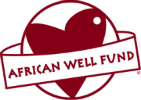
Last week we looked at the African Well Fund’s first project in Mali. In 2010 we had the opportunity to continue this work, helping to fund further wells in the areas served by Africare’s Goundam Food Security Initiative.
Two of these wells – those at Tinbaradjen and Gombatou- were built in villages which, while located on the Niger River, had very little access to safe water as government and NGOs focused their attention on drier, neighboring areas. This lack of access to clean water led affected Malians to drink directly from the river, leading to higher incidence of waterborne illness and disease.
The other two villages served – Intallassa and Zouera – were located in arid zones in the north of the project area. Annual rainfall here averages less than .8 inches a year, making access to any sort of water difficult. The existing shallow wells were not sufficiently deep to meet the water table year round and tended to go dry frequently.

As before, the project sought to both make clean water available and train villagers to manage the wells going forward. Overall, 6,185 Malians directly benefited from the wells, over twice as many as hoped at the project’s inception. In addition, over 800 nomadic people benefited indirectly from the construction.

Sindibla Ag Mohamed Assaleck, the president of the well committee, said:
“We used to have lots of problems due to lack of clean water. In my
village, we used to ask every household to pay 5,000 FCFA ($10) per week
to install a water system in the village but it didn’t work because
people couldn’t afford that amount, so we didn’t have any choice than
drinking untreated water from the river, 3 km away from the village.
During dry seasons, we would sink holes in the river bed to get water to
drink. Sometimes, we even came to the idea of abandoning our village
and looking for another place to settle in.
“But with this precious jewel that you constructed that idea is behind
us. Hope is restored in the village and you can see how women and men
are happy today. We lack words to express our satisfaction in
collaborating with Africare. Our thanks especially go to AWF who has made this dream come true.”
